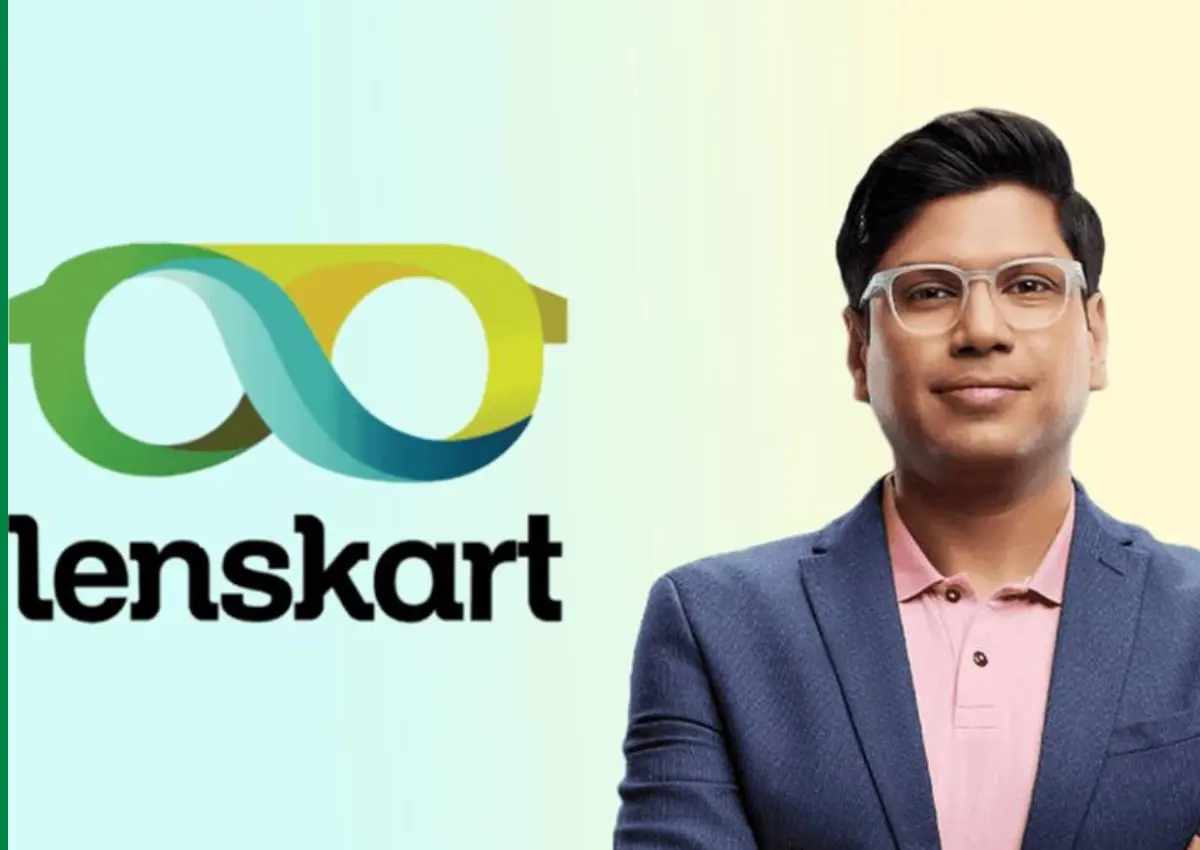India’s startup ecosystem has witnessed remarkable growth in recent years, becoming a powerhouse of innovation and entrepreneurship.
From fintech revolutionaries to mobility visionaries, these founders have not only built successful businesses but have fundamentally transformed how Indian’s live, work, and transact.
Here in this deep insight, you will explore the inspiring journeys of some of india’s top 10 startup founders success stories, who continue to develop the nation’s business landscape in 2025.
Let’s explore!
| Founder(s) | Startup | Key Industry |
| Harshil Mathur | Razorpay | Fintech |
| Bhavish Aggarwal | Ola / Ola Electric | Mobility, EV |
| Vijay Shekhar Sharma | Paytm | Fintech |
| Aman Gupta | boAt | Consumer Electronics |
| Lalit Keshre | Groww | Investment/Fintech |
| Nithin Kamath | Zerodha | Stock Brokerage |
| Deepinder Goyal | Zomato | FoodTech |
| Dharmil Sheth | PharmEasy | Healthcare |
| Sachin Bansal | Flipkart / Navi technologies | E-commerce/Fintech |
| Aadit Palicha & Kaivalya Vohra | Zepto | Quick Commerce |
Harshil Mathur: Razorpay’s Founder
The visionary mind of Harshil Mathur, who co-founded and leads Razorpay as CEO, revolutionized digital payments for startups and small businesses throughout India. After graduating from IIT Roorkee and previously working as an engineer, Harshil established his career by creating fintech solutions for India’s broken online payment market because he wanted to find concrete solutions to real-world business problems.

In 2014, with his fellow IITian Shashank Kumar, he joined forces to launch Razorpay after receiving Y Combinator’s incubation through the W15 batch to create an easier digital payment infrastructure for SMEs. Razorpay maintains its headquarters in Bangalore while holding an estimated market value of $7.5 billion as of December 2024. The company provides complete financial technology services for businesses to receive and process payments through UPI and card and net banking platforms.
The company expanded its product range under Harshil’s direction through RazorpayX (neo-banking) and Razorpay Capital (SME lending) solutions that led to serving more than 8 million businesses, including Zomato and Swiggy. Harshil demonstrated brilliant leadership when he used COVID-19 to help numerous businesses transition to digital operations, which solidified Razorpay’s status as a leading fintech company.
Razorpay has achieved growth by making both smart acquisitions and forming strategic alliances with world-leading organisations such as Mastercard alongside Truecaller and Axis Bank and maintaining its mission to make financial systems both accessible and affordable for everyone. Harshil maintains his position as one of IBT’s Top 20 CEOs of 2024 and also comes in the list of India’s top 10 startup founders, as he guides Razorpay through innovative initiatives that focus on customers.
Harshil Mathur’s story encompasses more than 100 rejected investors before becoming the leader of India’s top fintech unicorn, through which he demonstrates how purpose-built fintech platforms can transform entire economies through his abilities of vision and resilience.
Bhavish Aggarwal—The Visionary Behind Ola
IIT Bombay alumnus Bhavish Aggarwal initiated one of India’s most progressive startup beginnings by transforming a frustrating personal journey into reality in 2010. During his journey, he experienced an unreliable car service and aggravated customers, which led him to understand that India needed a superior method of transportation.
Bhavish started Ola Cabs after leaving Microsoft Research with experience from his Computer Science and Engineering studies and his short Microsoft Research period. He combined his entrepreneurial spirit with technological abilities to create Ola Cabs. Bhavish joined forces with co-founder Ankit Bhati, who also graduated from IIT, to create Ola Cabs from a small Mumbai metropolitan office.
They didn’t own cars. The founders entered the market without any experience from either the taxi business or owning vehicles. Their mission entailed connecting riders to drivers through technology so urban transportation would become accessible while featuring convenience at affordable rates.
Bhavish encountered multiple impediments, including doubts from financiers along with regulatory hurdles and defense from big international firms. Through his determined innovation paired with resilience he led Ola to achieve status as the largest ride-hailing platform, serving more than 250 cities, alongside its expansions into international markets across Australia UK and New Zealand.
Legocapitalis was never content with current accomplishments; he aimed for what would come ahead. Ola Electric became a new venture for him because he wanted to create sustainable mobility solutions while speeding up India’s transition towards electric vehicles.
Bhavish Aggarwal embodies the technological revolution happening throughout India as he charts the path toward becoming a successful business leader today. Forbes Time and Fortune recognize Bhavish as a leader while he spends his time mentoring new founders and advocating fair business practices alongside pushing advancement in mobility.
Vijay Shekhar Sharma: Paytm founder
Vijay Shekhar Sharma started his entrepreneurial journey in Aligarh before taking his company to lead its fintech revolution across India.
The young Sharma came from an ordinary family background yet displayed exceptional academic talents, which led him to finish school two years early at the age of 14. Moving from Hindi education to English education at Delhi University proved difficult for him during his transition because of the language barriers in the engineering field. The language barrier forced him to learn English through borrowed books and magazines because of his strong determination to cross all obstacles.
At the time when his engineering colleagues pursued job placements, Sharma had already set his ambitions towards something greater. Through his inspiration from global tech leaders such as Yahoo and Alibaba, he established XS Communications during his college years, which later evolved into One97 Communications, which became the principal company behind Paytm.
When Paytm arrived on the market, it revolutionised the entire way India conducted transactions. Before mobile wallets achieved popularity, Sharma introduced them to the market through a user-first digital payment system. Paytm achieved remarkable growth with Sharma’s determination while using his personal funding and taking high-interest loans to expand the business, which led to well-earned customer trust through easy usage and continuous support services.
Sharma’s efforts didn’t go unnoticed. Through his exceptional work, he gained prestige, with TIME naming him to their 100 Most Influential People list and Forbes crediting him as the Youngest Indian Billionaire, while GQ appointed him their Businessman of the Year. Through his leadership, Paytm became a widely recognized brand that provided substantial contributions to digitizing India’s economic system.
However, 2024 marked a challenging chapter. The Reserve Bank of India imposed an acceptance ban on Paytm Payments Bank’s new deposits because Sharma, as majority stakeholder, failed to resolve ongoing persistent compliance problems at the institution. The company reorganized its board to comply with regulatory expectations, which led Sharma to resign from his non-executive chairman position.
Vijay Shekhar Sharma never gave up, even when things got tough. He taught himself English and helped India learn about digital payments. His hard work made a big difference in the startup world, proving that determination is more important than being perfect. Today, he is counted among India’s top 10 startup founders.
Aman Gupta: Boat founder
Businessman Aman Gupta built his entrepreneurial path through the careful combination of direction-setting dream building, persistent effort and astute business execution. After finishing high school in 1982, Gupta started his career in the accountancy field until he recognized his true interest in business entrepreneurship. His persistent spirit following five business failures pushed Gupta to establish boAt alongside Sameer Mehta in 2016.
The new consumer electronics market received boAt as it launched with a Rs. 30 lakh capital investment. The company established itself rapidly through its fashionable and lasting audio products that also offered affordable pricing, including wireless earbuds as well as speakers and smartwatches. Gupta used his hardware engineering experience at Harman International (JBL) to create boAt’s distinctive brand approach, which, coupled with his focus on customer needs through his solutions of charge port reliability, brought boAt to the leading position in audio technology.
Success followed a demanding path for the company. The COVID-19 crisis compelled Gupta and his team to develop new manufacturing and delivery approaches because the pandemic exposed weaknesses in their previous strategies. Through his effective marketing approaches, Gupta led boAt to success despite the obstacles it faced. Through working with social media personalities and partnering with cricket veterans Rishabh Pant and Shikhar Dhawan, the company created solid brand recognition as a fashion item rather than an audio device.
Afterward, Aman Gupta started to gain recognition, which included awards for both the Entrepreneur of the Year and Young Entrepreneur Award. Through his role as a judge on Shark Tank India, he proved his investment knowledge and innovation-spotting capabilities to a wide audience. Daily payment by boAt received an investment of $60 million from Malabar Investments and Warburg Pincus, which enabled Gupta to direct the company toward global expansion while he simultaneously invests in new entrepreneurial projects.
Today, boAt is valued at over Rs. 700 crore, making Gupta one of India’s most prominent entrepreneurs. His success story is not just about building a business—it’s about overcoming adversity, redefining markets, and consistently listening to the pulse of the customer.
Aman Gupta’s journey exemplifies the power of resilience, strategic vision, and a relentless pursuit of excellence in the dynamic world of consumer electronics.Today he is recognized as one of india top 10 startup founders.
Lalit Keshre – Founder and CEO of Groww,
Through his position as the CEO at Groww, Lalit Keshre has brought important changes to Indian investment services by making financial products more accessible. Lalit Keshre began his path from being a technology enthusiast in his farming background until he became the CEO who led India’s prominent fintech startup while focusing intensely on teaching people about finance. Keshre co-launched Groww in 2016 and developed the company into a full investment network, which now supports equity trading alongside ETFs and gold and US stock purchases.
During his leadership, Groww experienced exponential growth, reaching more than 50 million users in 2023 while becoming a unicorn company that operates throughout different global regions. Keshre’s strategy to equalize investing opportunities and his product expansion, together with acquisitions to dominate the fintech sector, led to Groww’s market success. Through his dedication to financial literacy and customer focus and rural market expansion, Groww established its leadership position in the market.
Keshre achieved Business Today’s Entrepreneur of the Year award while also being named to Forbes 30 Under 40. Through his advocacy, he supports financial inclusion by mentoring young businesses and coordinating with NGOs to spread awareness about finance. Through his commitment to establishing Groww as a worldwide leader, Keshre actively directs financial investment development both inside and outside India.
Nithin Kamath: CEO & Founder of Zerodha
Nithin Kamath leads Zerodha as its CEO while remaining the founder of the discount brokerage firm that has become India’s largest stock brokerage firm. His mission to establish Zerodha challenged him through issues bound by perseverance alongside creative ideas, which established his status within the Indian financial operations framework.
The founder of Zerodha, Nithin Kamath, was born on October 5, 1979, in Shivamogga, Karnataka, to a family with a bank-employed background. The rhythmic instrument Veena became his musical passion after his mother taught him to play it.
After completing his education in Electronics and Telecommunications at Bangalore Institute of Technology, Nithin embarked on his entrepreneurial journey. At age 17, Nithin began handling trading actions for his father’s account that initiated his entrepreneurial path. The 2001-2002 market crash led to a significant monetary setback that Nithin had to endure. Today he is counted as one of india’s top 10 startup founders in 2025.
Nithin managed to keep his trading activities operational through his employment at a call center because he faced economic issues. He and his brother Nikhil eventually established Zerodha in 2010 to create a revolutionary approach in the brokerage services industry. Through its innovative trading technologies and discount brokerage model, Zerodha achieved rapid market acceptance before becoming India’s top leader in the online trading space.
The establishment of Zerodha faced various hurdles during its construction process. Zerodha emerged as a trading platform when Nithin combined the Sanskrit terms for zero and rodha (restriction) to achieve his goal of disrupting market boundaries. Through his dedication to resolving trader issues, Zerodha shaped itself into an Indian top brokerage leader known for exceptional technology and low-cost business solutions.
Nithin received recognition through his entrepreneurial drive as he entered the Forbes India’s 30 Under 30 list in 2016 and appeared on the IIFL Wealth Hurun India Self-Made Rich List in 2020. In 2019, Zerodha achieved its milestone of one million active clients, which made it the largest Indian stockbroker that operated without external funding in the industry.
The investments and net worth of Nithin stand at $2.7 billion while he actively supports various startup initiatives. His business portfolio reveals investments at Pee Safe combined with funding for Licious and Ultrahuman, where he demonstrates outstanding relevant business skills and commitment to developing new solutions.
Deepinder Goyal: Founder of Zomato
Indian entrepreneur Deepinder Goyal founded Zomato to create a landmark transformation within the food delivery arena across the whole nation and further international markets. He launched Foodiebay in 2008, which later became Zomato, following his 1983 birth in Muktsar and his graduation from IIT Delhi and Bain & Company work experience. Zomato expanded its operations internationally after India and added restaurant evaluations as well as digital menu access and food ordering capabilities to its services.
Zomato reached its first status as a foodtech unicorn in India during 2017 and followed with its initial public offering in 2021, which valued it at $13.3 billion. Through his persistence and innovative mindset, Deepinder received both ET Startup of the Year and became a Fortune India’s 40 Under 40 honoree. His net worth sits at ₹2,570 crore and he invested through his wealth into businesses such as Shiprocket and Unacademy.
Deepinder used his visionary outlook along with determination and innovative business methods to turn Zomato into a leading global company.
Dharmil Sheth – Co-Founder of PharmEasy
Through his co-foundation of PharmEasy, Dharmil Sheth revolutionized Indian healthcare by bringing technology-centered accessibility combined with cost reductions to the sector. Sheth combined his expertise in healthcare through a pharmacy degree from Mumbai University together with business knowledge from NMIMS school of business to develop solutions for quality healthcare service accessibility.
Sheth established PharmEasy in 2015 as a healthcare platform that facilitates medicine delivery and diagnostic tests and teleconsultation services along with wellness products through a connection between patients and pharmaceutical outlets and medical providers. Sheth’s leadership enabled PharmEasy to establish itself as one of India’s biggest healthcare platforms, which now delivers an improved healthcare service to millions.
The achievements of Sheth resulted in his inclusion in Forbes’ 30 Under 30 list during 2018 and he received the EY Entrepreneur of the Year award in 2020. Sheth’s smart ideas changed how people get medical services and inspired new innovators to improve the healthcare industry from scratch.
Dharmil Sheth’s success with PharmEasy is a testament to his commitment to improving healthcare accessibility, and his work continues to shape the future of the industry.
Sachin Bansal: The Visionary Behind Flipkart and Navi Technologies
Indian entrepreneur Sachin Bansal founded Flipkart with Binny Bansal and heads this prominent e-commerce company established in India. He was born on August 5th in 1981. Sachin launched his business venture together with his unrelated co-founder Binny Bansal in 2007 to transform online shopping in India. The growth of Flipkart under his guidance reached $20.8 billion in valuation by 2018, when he sold his 5.5% stake to Walmart, taking away over $1 billion in net worth.

After earning his Computer Science degree from IIT Delhi, Sachin started work at Amazon Web Services and founded Flipkart using a capital amount of ₹4 lakh. Between 2016 and 2018, Sachin Bansal held the position of Executive Chairman at Flipkart while upholding a non-compete clause with Walmart until he departed from the company after its takeover deal with Walmart.
After leaving Flipkart, Sachin founded BACQ Acquisitions and proceeded to invest in Ola Cabs and Unacademy alongside other startups. He built Navi Technologies, which operates in the financial sector through technology-based business operations. The insurance firm COCO underwent ownership by Navi before the startup initiated an IPO worth INR 3350 crore in 2022. Today he is recognized as one of india’s top 10 startup founder, through his continually innovative approach in tech and finance regions, Sachin Bansal motivates upcoming businesspeople while remaining a sector leader.
Aadit Palicha & Kaivalya Vohra: The Entrepreneurs Behind Zepto’s
Remember those Stanford college dropouts? Well, Aadit Palicha and Kaivalya Vohra established Zepto when they launched their leading rapid grocery delivery startup in India during 2021. The founders began their entrepreneurial venture with Kiranakart; however, it failed so they continued working to establish Zepto as a 10-minute grocery delivery service. Zepto secured widespread market recognition along with fast delivery service establishment, which enabled it to create a substantial impact in the online grocery sector. The company entered Delhi and then Chennai followed by Bengaluru and finally established itself as a market leader in Mumbai.
For 2022, the entrepreneurs appear on the Hurun India Future Unicorn Index, showing Palicha holds a net worth of Rs 1,200 crore while Vohra demonstrates Rs 1,000 crore. Zepto’s extraordinary expansion led to an astonishing rise from $200 million to $570 million during its first few months on the market. Zepto established 100 dark stores across the country to process up to 2,500 orders daily through their commitment to quick and effective delivery services.
By keeping its foundational promise of fast delivery and upholding a large market footprint, Zepto separates itself from organizations that build large entities based on theoretical value. Palicha and Vohra aim to lead the market through Zepto’s instant delivery method that is redefining how Indians receive their online orders.
Final thoughts
The startup ecosystem of India keeps developing because of the optimistic founder visions and determination that power its forward momentum. Through their business initiatives, these entrepreneurs both eliminated established business sectors and built fresh market spaces that benefit generations to come.
These top 10 startup founders success stories demonstrate how innovation combined with resilience and leadership helps create the business structure of India for 2025 across industries like fintech and healthcare, together with mobility and e-commerce.
They guide their businesses toward superior success, which motivates numerous beginning entrepreneurs to challenge traditional practices and develop bold strategies without losing dedication to their goals. These startup founders demonstrate that India serves both as a worldwide innovation center and an inspirational point for entrepreneurial greatness.
FAQs
How many startups in india in 2025?
More than 161,140
Which is india’s biggest startup?
Flipkart, Ola, Zomato, Paytm and PharmEasy
Which sector is best in india in 2025?
Electric vehicles (EV), Healthcare, Insurance and renewable Energy.
What is a successful online small business?
Online tutor, content creation and online stores.



